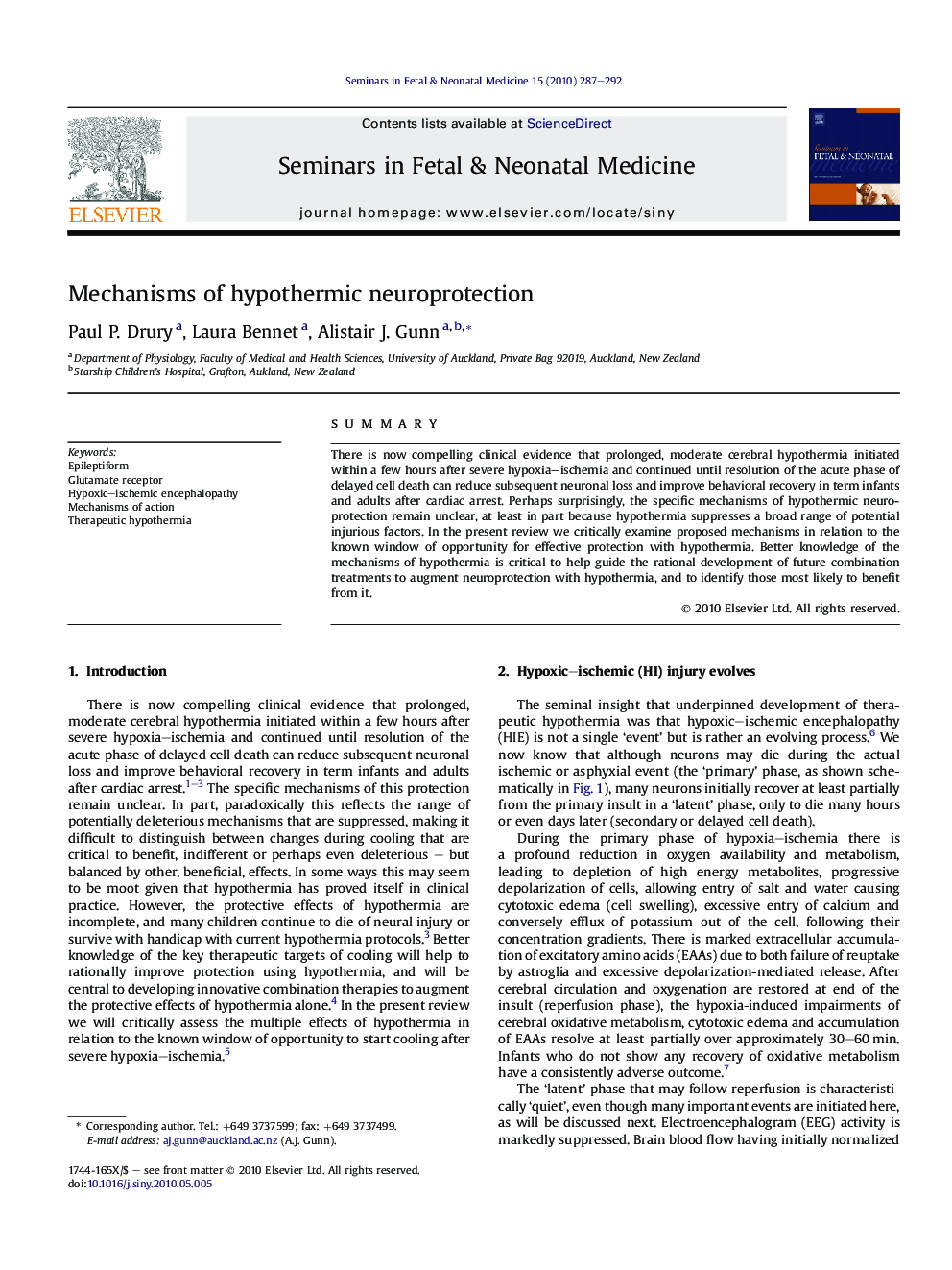| Article ID | Journal | Published Year | Pages | File Type |
|---|---|---|---|---|
| 3974660 | Seminars in Fetal and Neonatal Medicine | 2010 | 6 Pages |
SummaryThere is now compelling clinical evidence that prolonged, moderate cerebral hypothermia initiated within a few hours after severe hypoxia–ischemia and continued until resolution of the acute phase of delayed cell death can reduce subsequent neuronal loss and improve behavioral recovery in term infants and adults after cardiac arrest. Perhaps surprisingly, the specific mechanisms of hypothermic neuroprotection remain unclear, at least in part because hypothermia suppresses a broad range of potential injurious factors. In the present review we critically examine proposed mechanisms in relation to the known window of opportunity for effective protection with hypothermia. Better knowledge of the mechanisms of hypothermia is critical to help guide the rational development of future combination treatments to augment neuroprotection with hypothermia, and to identify those most likely to benefit from it.
